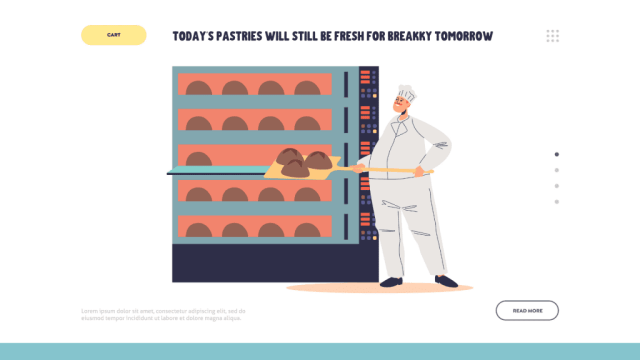Does Your Business Need More Than One Domain?
You already know how important choosing a suitable domain is. It can affect your brand awareness and discoverability on the internet – both of which affect how successful your online business can be. Your domain name is the foundation of your new website and usually something you sort out right at the start.
But if you think that once you’ve made that decision, you’re done, think again. Owning multiple domains is not just something that large corporations have to deal with, but also a smart option to help small businesses with marketing, branding or even legal reasons.
TL;DR: while there’s no way around registering yourbrand.com, you can take it a step further and see how your business could benefit from having more than one domain.
Why Do You Need Multiple Domains?
1. Protect Your Brand
Acquiring multiple domains for your business can help protect and strengthen your brand.
Scenario 1: Imagine your business name has recently changed from Bake n’ Take to Brianna’s Bakery. Well, it can be helpful to set up domains for both the old and new names to avoid confusion or even losing customers who never remember your name change. Oh, and you can simply redirect your old domain to your new homepage, so you don’t need to maintain two websites.
Scenario 2: Typos and misspellings happen. Whether brain fart or clumsy keystroke, they creep into online searches, and just like that, your customers end up somewhere else. Worst case, that’s the website of the bakery two blocks away that looks just as inviting. Getting additional domain names, like brianasbakery.au, will not only save your visitors from getting lost in space but also stop competitors from using a similar domain to steal your traffic.
Scenario 3: People don’t always refer to your brand by its official name. If everyone in town knows you by your nickname Bri, you should also consider registering brisbakery.au. Coca-Cola has done exactly the same by registering coca-cola.com and coke.com.
2. Increase Online Visibility
Using multiple descriptive domain names makes it easier for potential customers to find you – and helps your SEO efforts. Always try to put yourself in your visitor’s shoes. Maybe they stumbled across your online store in a newspaper ad this morning and only vaguely remember its name. What would they google to find you? What product are they most likely to remember? These sorts of questions can help you work out which domains make sense for your online presence.
Just make sure all your domains are redirected to your main site. That way, it’s easier for search engines to index your page properly (don’t worry, once set up correctly Google & Co. won’t penalize you for duplicate content). And regardless of how you created your website, domain forwarding is easy. Just look for a domain redirection option at your domain registrar or contact support for help.
3. Descriptive Domains for a Marketing Campaign
Using a descriptive new domain for a specific marketing campaign can be a great tool and increase traffic to your website. It also gives you the opportunity to design a creative and different landing page, not constrained by the look and feel of your main website.
Let’s go back to Brianna and her bakery. To reduce food waste, Brianna sells leftover baked goods at the end of the day for a small price. She is promoting her venture on social media under the hashtag #BriannaStopsFoodWaste and registered briannastopsfoodwaste.au to share more information and include a call-to-action button to reserve a bag of day-old treats. This new domain name is catchy, easy to promote, and more memorable than briannasbakery.au/too-good-to-go-bags.

Choose Domain Names That Are Right For You
You Never Go Wrong With .COM
Since .COM is usually our go-to domain when we want to order something online, you can’t really go wrong with registering a .COM domain. It probably has the highest recall value among customers and some mobile phones even have a button that shows .COM after you’ve typed in a domain name.
Therefore, people might type briannasbakery.com in their browser by default when they are searching for her website. Even though Brianna is not selling her home-baked lamingtons online, getting a .COM is worth a thought.

Get Your Local Domain
Local domains such as .AU, .NZ, or .CO.UK are ideal for businesses from the region. There’s no better way to show where you’re from before someone even clicks on your website.
Different domains can also help to grow your small business and tap into new markets. As a multinational company, having several country-specific domains provide a personalised experience to your customers in a geographic area.
In our example, Brianna is in Australia and as .AU is the official Australian country code domain, briannasbakery.au makes sense. However, we’d suggest registering .MELBOURNE too, as she surely wants to be found by residents and tourists in her city.
Consider New TLDs
Have you heard about new top-level domains (nTLDs)? (Well, they’ve been around for almost a decade now but they are still known as new TLDs). New generic top-level domains like .ART or .BLOG are descriptive and can be an opportunity for your business to get even more traffic. These types of domains can make you stand out in search engine results, are easy to remember, and connect your website to your offering at first glance.
Let’s say Brianna wants to grow her business and open a cafe in the backyard. Acquiring an additional nTLD like briannasbakery.cafe can open up access to a different audience of users who are not just looking for a croissant to-go, but a cozy spot for a cappuccino with friends.
In the online world, your domain is your unique identity. Anyone planning an internet presence should think about a domain strategy and how it can help your business build a more professional look. This includes protecting copyrights and trademarks, building credibility, increasing brand awareness, and positioning in search engines.
Of course, you don’t need every single domain suggested here. Think about which of these is relevant for you and your brand or get feedback from your customers. What do they associate with your brand name? Are there common typos or misspellings? Understanding your customers should be at the heart of your business anyway, not least when it comes to domains and domain extensions.
You May Also Like

